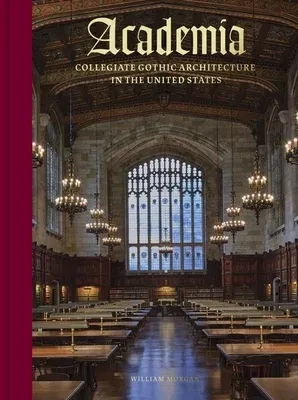The Collegiate Gothic style, which flourished between the Gilded Age and
the Jazz Age, was intended to lend an air of dignified history to
America's relatively youthful seats of higher learning. In fact, this
mash-up of Oxbridge quaintness with piles of new money gave rise--at
schools like Princeton and Vassar, Yale and Chicago--to unprecedented
architectural fantasies that reshaped the image of the college campus.
Today the ivy-covered monuments of Collegiate Gothic still exercise a
powerful hold on the public imagination--as evidenced, for example, by
their prominent place in the Dark Academia aesthetic that has swept
social media.
In Academia, the noted architectural historian William Morgan traces
the entire arc of Collegiate Gothic, from its first emergence at
campuses like Kenyon and Bowdoin to its apotheosis in James Gamble
Rogers's intricately detailed confections at Yale. Ever alert to the
complicated cultural and social implications of this style, Morgan
devotes special sections to its manifestations at prep schools and in
the American South, and to contemporary revivals by architects like
Robert A. M. Stern.
Illustrated throughout with well-chosen color photographs, Academia
offers the ultimate campus tour of our faux-medieval cathedrals of
learning.

